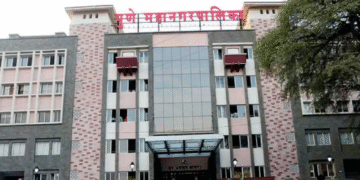Dhayari, KirkatwadiSpecial Correspondent
Pune: In areas including Sinhagad Road, Dhayari, Kirkatwadi, Nanded, and DSK Vishwa, residents are gripped by fear as a surge in Guillain-Barré Syndrome (GBS) cases has been linked to contaminated water. Water samples collected from 15 tanker filling stations across the city tested positive for E. coli and coliform bacteria, with chlorine levels falling below acceptable limits, rendering the water unfit for consumption. In response, the PMC water supply department mandated that all tanker operators mix free bleaching powder into their water supplies. However, only one tanker driver has complied with this directive so far, raising concerns about the municipal corporation’s next steps.
Following instructions from Municipal Commissioner Dr. Rajendra Bhosale, the Swargate water supply department gathered samples from private tanker filling stations in Dhayari, Manaji Nagar, and Malwadi on January 28. These samples, tested at the Parvati municipal laboratory and reported on January 30, revealed that bacterial contamination in all 15 tanker filling stations significantly exceeded acceptable levels. As a result, tanker operators and well owners were ordered to use bleaching powder for water purification.
Despite these orders, the municipal water supply department has yet to secure comprehensive information on the sources of tanker water in the city, and further action has been limited to issuing paperwork. In a separate incident, a society in Kharadi received treated sewage water for drinking, prompting residents to file a police complaint. Although the water supply department subsequently issued a notice requiring tankers supplying treated water to be painted green, no substantial measures have been taken, leaving residents frustrated over the ineffective response.
With a high number of GBS cases reported in Dhayari, Nandoshi, Kirkatwadi, Nanded, and surrounding villages—where water is drawn from 16 wells and borewells by local operators—the municipal corporation is under increasing pressure to act. In response to the outbreak, additional water samples from private tanker filling stations and RO plants have been collected, and the PMC is urging local societies to seek water purity inspections.
“The inspection report clearly indicates that water from tanker filling stations is contaminated. Tanker drivers were instructed to mix bleaching powder, but only one driver has complied so far. Those who do not follow these orders will face action. Bleaching powder has been provided at tanker points in GBS-affected areas, and we will extend inspections to other parts of the city,” stated Nandkishor Jagtap, Head of the Water Supply Department, PMC.















